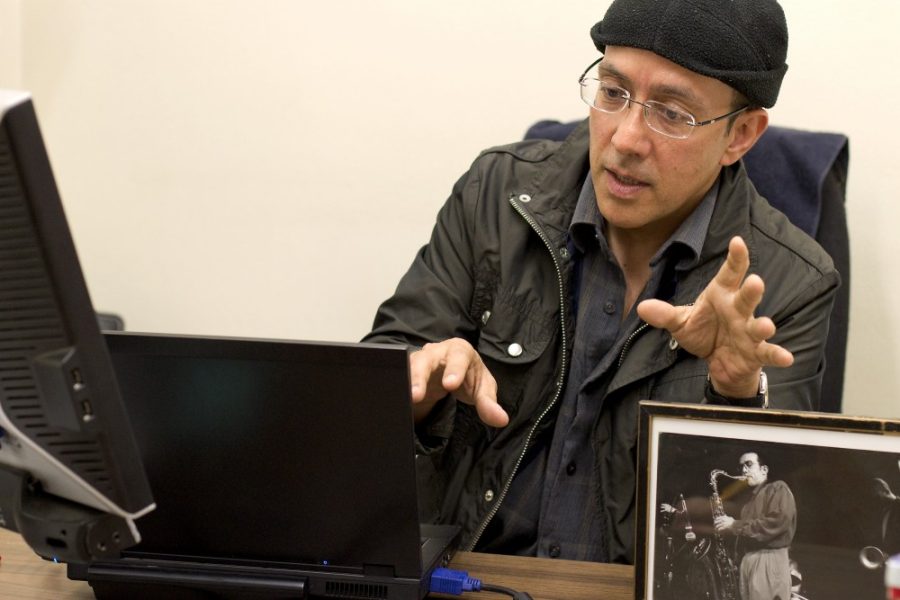For those who want work in academia, a college degree seems like a no-brainer. One UA professor, however, has created his own successes in his field without any formal academic training.
Jaime Fatás, an assistant professor of practice in the Department of Spanish and Portuguese as well a translational and interpretation services specialist, never earned a college degree related to his work and considers himself to be completely self-taught.
Fatás was initially interested in music. Born and raised in Spain, Fatás originally moved to America in 1986 at the age of 26 to pursue a professional career playing woodwind instruments. A few years later, Fatás graduated from the Berklee College of Music in Boston with a dual degree in performance and composition.
Fatás then became a professional musician who performed around the country, playing woodwinds in many styles, including classical, jazz and pop. But the reason he moved to America was because of his interest in interpretation.
Music is a lot like interpretation, Fatás said, in that both are enriching and cognitive. Music itself is a language, and just like any spoken language, it is a form of interpretation. To be able to interpret it, it is important to have great cognitive skills, motor skills and the ability to think fast, he said. Interpretation while playing music, Fatás said, is not just playing the notes or translating the words, but rather translating an original idea and telling the story that the composer is trying to relay through the music. This is how language interpretation works as well, he added.
Fatás, self-taught in English, also taught himself the interpretation skills necessary to become a federally licensed interpreter and translator in Spanish and Portuguese. He said he studied for many years and took the federal exams necessary to become licensed. Being licensed, Fatás added, means that he is authorized as an interpreter and translator for U.S. and federal courts as well as hospitals and clinics.
Fatás’ students say they value his experiences because they have shaped his dedication to teaching.
Eric Wheeler, a senior studying Spanish interpretation, said when he first had Fatás as a teacher he was intimidating. Fatás is not afraid to let you know what he has done to obtain his success, Wheeler said.
Wheeler approached Fatás about helping him find interpreters for his work with the Arizona Model United Nations conference, and said that Fatás’ willingness to help reinforced that “he is interested in his students.”
“He is concerned with students’ progress and he wants to see us all succeed,” Wheeler said.
Hoyt Hoyt, a senior studying translational and interpretational Spanish, said the first day he had Fatás as a professor he leaned back in his chair and put his arms up behind his head. Fatás noticed and said, “If you’re gonna act like a gorilla, I don’t need you in my class.” Since then, Hoyt said he has been “totally invested” in his classes with Fatás, and that he’s a great teacher because he is not there to be your friend or make it easy.









